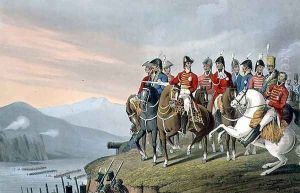Rigaud, Stephen Francis Dutihl Paintings
Stephen Francis Dutihl Rigaud, often known as Stephen Rigaud, was an English portrait painter and art teacher. He was born in 1770 in England. His father, John Francis Rigaud, was also a notable painter who had studied with notable artists in Italy before moving to London. Stephen followed in his father's artistic footsteps and became known for his portrait work.
Rigaud received his education at the Royal Academy schools in London, where he exhibited his works between 1788 and 1821. His style was influenced by the neoclassical ideals prevalent at the time, and he was well-regarded by his contemporaries for his artistic skills. Although he primarily focused on portraiture, Rigaud also occasionally produced historical and biblical scenes.
In addition to his painting career, Rigaud was also involved in education. He was appointed as a Perspective Lecturer at the Royal Military Academy in Woolwich, where he taught drawing and painting to cadets. His role as an educator was significant, as he influenced a number of young artists and military officers who would go on to use these skills in their careers.
Rigaud's works were known for their fine detail and careful rendering of his subjects. His commitment to realism and the capturing of his subject's character made his portraits sought after. Unfortunately, despite his skill and the connections he had thanks to his father, Rigaud did not achieve the same level of fame as some of his contemporaries.
Stephen Francis Dutihl Rigaud died in 1826, leaving behind a modest but respected body of work. While he may not be as well-remembered as some of his peers, Rigaud's contributions to English portraiture and art education during the late 18th and early 19th centuries were valuable. His works continue to be studied for their representation of British society of the period and are held in various art collections around the world.
